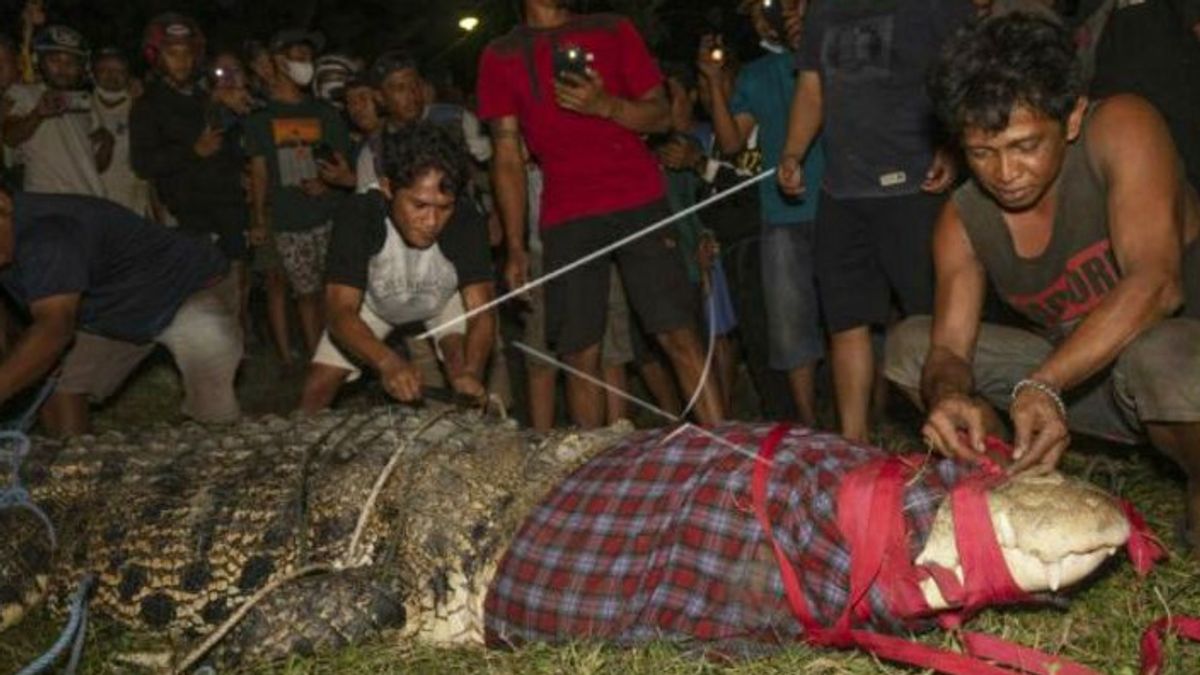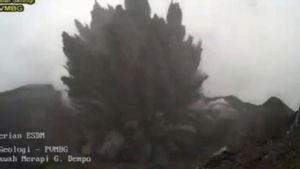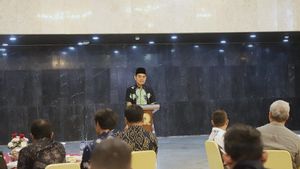JAKARTA - The Central Sulawesi Natural Resources Conservation Center (BKSDA) gave an explanation about the presence of crocodiles in the Palu River.
They don't catch all the crocodiles and move them to captivity. The reason is that there are cultural considerations that become the local wisdom of the local community.
"Although the aim is to protect the main residents who live on the banks of the Palu River from the threat of wildlife attacks which can happen at any time. But there is consideration of the local wisdom of the residents who live on the banks of the river and the Palu River is indeed the habitat of the crocodiles there," said Head of the Central Sulawesi BKSDA Hasmuni Hasmar, Monday, February 21, as reported by Antara.
He explained that local wisdom meant that the natives of Palu, especially those living along the riverbanks, already considered the crocodiles there as friends. It could even be considered his family. So they do not consider the crocodile as a wild animal, dangerous and scary.
This local wisdom has been ingrained for decades. If the BKSDA catches and transfers all the crocodiles there to a captivity, many residents will protest and object.
"Because there has been a connection with crocodiles in the river for generations. For example, when residents caught a crocodile with a tire collar to remove the tire from its neck. After the tire was successfully removed, the residents did not want the crocodile to be moved into captivity. They were released back into the Palu River," he said.
Therefore, Hasmuni stated that his party only provides socialization and appeals to residents, especially those living on the banks of the river so that they are not negligent and always alert so that unwanted things do not happen such as being victims of crocodile attacks.
In addition, his party also put up signs prohibiting activities at a number of points on the Palu River and Palu Bay to avoid the threat of crocodile attacks.
"Based on the results of the 2018 study, there are 36 crocodiles that live and live and breed in the Palu River. Some time ago five tails have been caught so that until now there are 31 tails left," he added.
The English, Chinese, Japanese, Arabic, and French versions are automatically generated by the AI. So there may still be inaccuracies in translating, please always see Indonesian as our main language. (system supported by DigitalSiber.id)













